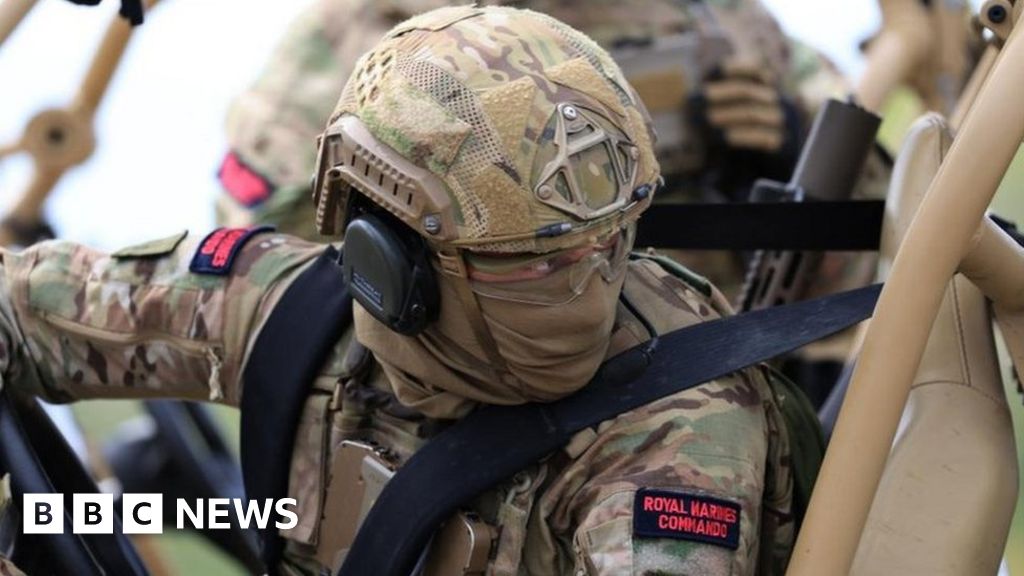- By Sam Francis
- Political reporter, BBC News
The UK will be left increasingly reliant on military allies due to a £29bn financial black hole in defence spending, MPs have warned.
The influential Public Accounts Committee (PAC) warned the government currently lacked a “credible plan” to fund the Ministry of Defence.
PAC warned this “undermined” the credibility of Britain’s armed forces.
Chancellor Jeremy Hunt has promised defence spending will rise to 2.5% of GDP when “economic conditions allow”.
The latest Nato data estimates that the UK spends 2.07% of GDP on defence.
But Paul Johnson from the Institute for Fiscal Studies said Mr Hunt’s promise to increase defence spending was “not worth the paper it’s written on unless accompanied by some sense of how it will be afforded”.
In a report on Wednesday’s budget, Mr Johnson said the “economic conditions” allowed the government to use an estimated £10bn of headroom to allow cuts to National Insurance instead – which could have been spent on defence funding.
“That would have just about met the target – actions speak louder than words,” he said.
Last year the National Audit Office (NAO) said the Ministry of Defence was facing a £16.9bn black hole in its finances – despite an injection of £46.3bn over the next 10 years.
This is the largest ever deficit between the armed forces budget and the cost of the UK’s desired military capabilities.
But the PAC warned the actual deficit might be closer to £29bn, as parts of the armed forces limited their budget to what’s affordable, excluding some government requests.
Dame Meg Hillier, chairwoman of the cross-party PAC, said: “In an increasingly volatile world, the Ministry of Defence’s lack of a credible plan to deliver fully funded military capability as desired by government leaves us in an alarming place.
“Despite a budget increase, this year’s plan shows a clear deterioration in affordability. The MoD must get to a better grip, or it won’t be able to deliver the military capabilities our country needs.”
Military alliance
In a report on the MoD’s Equipment Plan published on Friday, the PAC said gaps in military capabilities increased the UK’s dependence on allies and eroded the armed forces’ credibility.
The PAC also called on the government to prepare strategies for a world where allies reduce or stop their support to the UK.
The MPs said: “With the support of its allies, the UK’s armed forces continue to fulfil a crucial international role.
“However, many of its allies are facing similar challenges to the UK, which might affect their ability and willingness to continue providing extensive support.”
MPs also renewed their criticism of the MoD’s procurement processes, saying that slow delivery of new systems had caused gaps in military capability.
Only two of the MoD’s 46 equipment programmes are currently judged to be “highly likely” to be delivered to time, budget and quality.
Five projects including nuclear submarine reactors, new communications technology and missiles have been judged unachievable.
Responding to the report, a spokesperson for the Ministry of Defence said the government was “significantly increasing spending on defence equipment to £288.6bn over the next decade” and “introducing a new procurement model to improve acquisition”.
“Our Armed Forces stand ready to protect the UK and as a leading contributor to Nato, we continue to defend our national interests and those of our allies.”

William Turner is a seasoned U.K. correspondent with a deep understanding of domestic affairs. With a passion for British politics and culture, he provides insightful analysis and comprehensive coverage of events within the United Kingdom.








